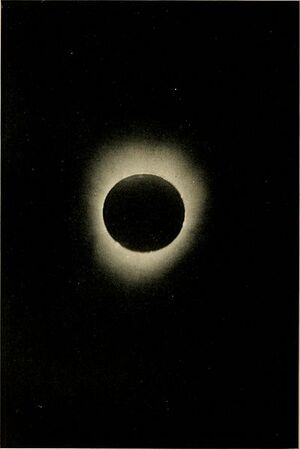Eclipse (nonfiction)
An eclipse is an astronomical event that occurs when an astronomical object is temporarily obscured, either by passing into the shadow of another body or by having another body pass between it and the viewer. An eclipse is a type of syzygy.
The term eclipse is most often used to describe either a solar eclipse, when the Moon's shadow crosses the Earth's surface, or a lunar eclipse, when the Moon moves into the Earth's shadow. However, it can also refer to such events beyond the Earth–Moon system: for example, a planet moving into the shadow cast by one of its moons, a moon passing into the shadow cast by its host planet, or a moon passing into the shadow of another moon.
Records of solar eclipses have been kept since ancient times. Eclipse dates can be used for chronological dating of historical records. A Syrian clay tablet, in the Ugaritic language, records a solar eclipse which occurred on March 5, 1223 B.C., while Paul Griffin argues that a stone in Ireland records an eclipse on November 30, 3340 B.C.
In the News
1560: The occurrence at the predicted time of a solar eclipse in Copenhagen turns Tycho Brahe towards a life of observational astronomy.
Fiction cross-reference
Nonfiction cross-reference
External links:
- Elipse @ Wikipedia

